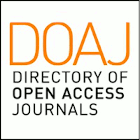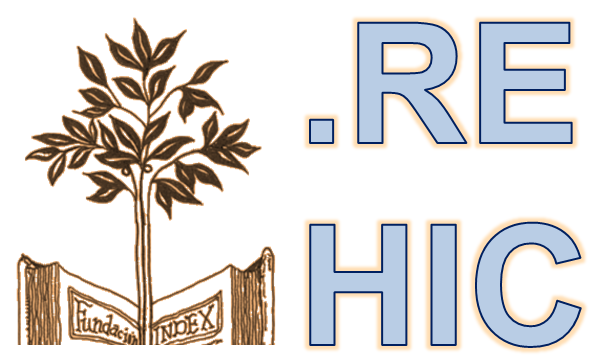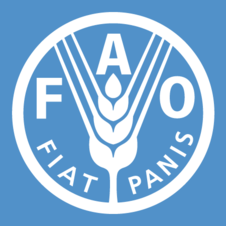Social support perceived in social networks by university students from the South and North of Mexico
DOI:
https://doi.org/10.29105/respyn21.2-1Keywords:
Social support, social networking, internet, education higherAbstract
Introduction: Social support on social networks are those online relationships that are maintained with a relative basis of sincerity, support and trust that can be resorted to if necessary. Objective: To determine the relationship and differences between the perceived social support in social networks with sociodemographic variables in university students of two public institutions belonging to the North and South of Mexico (Monterrey and Minatitlan). Material and method: Exploratory design. The sample consisted of 304 university students with non-probabilistic sampling for convenience. The Spearman, Mann-Whitney and Kruskal-Wallis test was used considering the statistical significance of p< 0.05. Results: Significant differences were found, with greater perceived social support in students from the northern area and in lower semesters. There were no significant differences with respect to sex. A negative relationship was found between perceived social support with the semester (rs=-202, p<.05) and age (rs=-286, p<.05). Conclusions: University students in less advanced semesters receive greater social support from social networks and as they progress it is diminished, so also at a younger age greater perception of social support. It is important to develop support strategies in social networks that strengthen emotional and cognitive aspects of students during their training.
Downloads
References
Almeida, L. Y., Carrer, M. O., Souza, J., y Pillon, S. C. (2018). Evaluation of social support and stress in nursing students. Avaliação do apoio social e estresse em estudantes de enfermagem. Revista da Escola de Enfermagem da USP, 52, e03405. https://doi.org/10.1590/S1980-220X2017045703405 DOI: https://doi.org/10.1590/s1980-220x2017045703405
Arab, L. E., y Díaz, G. A. (2015). Impacto de las redes sociales e internet en la adolescencia: aspectos positivos y negativos. Revista Médica Clínica Las Condes, 26(1), 7-13. https://doi.org/10.1016/j.rmclc.2014.12.001 DOI: https://doi.org/10.1016/j.rmclc.2014.12.001
Aranda, C., y Pando, M. (2013). Conceptualización del apoyo social y las redes de apoyo social. Revista de investigación en psicología, 16(1), 233-245. https://doi.org/10.15381/rinvp.v16i1.3929 DOI: https://doi.org/10.15381/rinvp.v16i1.3929
Castillo-Parra, S., Bacigalupo Araya, J. F., García Vallejos, G., Lorca Nachar, A., Aspée Lepe, P., y Gortari Madrid, P. (2020). Necesidades de docentes y estudiantes para humanizar la formación de enfermería. Ciencia y Enfermería, 26, 1-13. http://dx.doi.org/10.4067/s0717-95532020000100202 DOI: https://doi.org/10.4067/S0717-95532020000100202
Cole, D. A., Nick, E. A., Zelkowitz, R. L., Roeder, K. M., y Spinelli, T. (2017). Online Social Support for Young People: Does It Recapitulate In-person Social Support; Can It Help? Computers in human behavior, 68, 456–464. https://doi.org/10.1016/j.chb.2016.11.058 DOI: https://doi.org/10.1016/j.chb.2016.11.058
Condyque, M. K. J., Herrera, P. A. E., Ramírez, P. A., Hernández G. P. L., y Hernández, A. L. I. (2016). Nivel de Estrés en los estudiantes de las Licenciaturas en Enfermería y Nutrición de la Universidad de la Sierra Sur. Revista Salud y Administración, 4(9), 15-24. http://www.unsis.edu.mx/SaludyAdministracion/09/A2_Nivel_Estres.pdf
Daura, F. T. (2015). Aprendizaje autorregulado y rendimiento académico en estudiantes del ciclo clínico de la carrera de Medicina. Revista electrónica de investigación educativa, 17(3), 28-45. http://www.scielo.org.mx/scielo.php?script=sci_arttext&pid=S1607-40412015000300003
Falcón, V. M. (2013). La educación a distancia y su relación con las nuevas tecnologías de la información y las comunicaciones. Medisur, 11(3), 280-295. http://scielo.sld.cu/scielo.php?script=sci_arttext&pid=S1727-897X2013000300006
Fernández, P. R. (2005). Redes sociales, apoyo social y salud. Perifèria. Revista de recerca i formació en antropologia, 3(2), 48-63. https://doi.org/10.5565/rev/periferia.149 DOI: https://doi.org/10.5565/rev/periferia.149
Fuente, A., Herrero, J., y Gracia, E. (2010). Internet y apoyo social: sociabilidad online y ajuste psicosocial en la sociedad de la información. Acción psicológica, 7(1), 9-15. https://doi.org/10.5944/ap.7.1.201 DOI: https://doi.org/10.5944/ap.7.1.201
Gámez, E. I., y Kramer, R. C. A. (2014). Uso de Facebook en ámbitos educativos universitarios: Consideraciones y recomendaciones. Apertura, 6(2), 1-12. http://www.udgvirtual.udg.mx/apertura/index.php/apertura/article/view/536
González, R. M. T., Landero, H R., y Díaz, R. C. L. (2013). Propiedades psicométricas de una escala para evaluar el apoyo social a través de las redes sociales. Acta de investigación psicológica, 3(3), 1238-1247. http://www.scielo.org.mx/scielo.php?script=sci_arttext&pid=S2007-48322013000300004 DOI: https://doi.org/10.1016/S2007-4719(13)70963-3
Guevara, V. M. C., Cárdenas, V. V. M., y Hernández, C. P. L. (2017). Protocolos de investigación en enfermería. México, D.F. Editorial El Manual Moderno.
Guevara-Valtier, M. C., Pacheco-Pérez, L. A., Velarde-Valenzuela, L. A., Ruiz-González, K. J., Cárdenas-Villarreal, V., & Gutiérrez-Valverde, J. M. (2021). Social network support and risk factors for obesity and overweight in adolescents. Apoyo en redes sociales y factores de riesgo de sobrepeso y obesidad en adolescentes. Enfermeria clinica (English Edition), 31(3), 148–155. https://doi.org/10.1016/j.enfcli.2020.11.007 DOI: https://doi.org/10.1016/j.enfcli.2020.11.007
Hernández, B. A., y Camargo, U. Á. (2017). Autorregulación del aprendizaje en la educación superior en Iberoamérica: una revisión sistemática. Revista Latinoamericana de Psicología, 49(2), 146-160. https://doi.org/10.1016/j.rlp.2017.01.001 DOI: https://doi.org/10.1016/j.rlp.2017.01.001
Hernández, R., y Mendoza, C. (2018). Metodología de la investigación. Las rutas cuantitativa, cualitativa y mixta. México, D.F.: McGraw-Hill Education. DOI: https://doi.org/10.17993/CcyLl.2018.15
Instituto Nacional de Estadística y Geografía. (2016). Programa anual de estadística y geografía. SNIEG. México.
Marín Díaz, V., Sampedro Requena, B., y Muñoz González, J. (2015). ¿Son adictos a las redes sociales los estudiantes universitarios? Revista Complutense de Educación, 26, 233-251. https://doi.org/10.5209/rev_RCED.2015.v26.46659 DOI: https://doi.org/10.5209/rev_RCED.2015.v26.46659
Martínez, L. Z., Paramo, F. M. F., Guisande, C. M. A., Tinajero, V. C., da Silva, A. L., y Rodríguez, G. M. S. (2014). Apoyo social en universitarios españoles de primer año: propiedades psicométricas del Social Support Questionnaire-Short Form y el Social Provisions Scale. Revista Latinoamericana de Psicología, 46(2), 102-110. https://doi.org/10.1016/S0120-0534(14)70013-5 DOI: https://doi.org/10.1016/S0120-0534(14)70013-5
Maturana, A. y Vargas, A. (2015). El estrés escolar. Revista Médica Clínica Las Condes, 26(1), 34-41. https://doi.org/10.1016/j.rmclc.2015.02.003 DOI: https://doi.org/10.1016/j.rmclc.2015.02.003
Mazzanti, M. Á. (2011). Declaración de Helsinki, principios y valores bioéticos en juego en la investigación médica con seres humanos. Revista Colombiana de Bioética, 6(1), 125-145. https://doi.org/10.18270/rcb.v6i1.821 DOI: https://doi.org/10.18270/rcb.v6i1.821
Ortiz-Peña, M. C., Navarro-Oliva, E. I. P., Echevarria-Cerda, F. J., Guzmán-Facundo, F. R., Pacheco-Pérez, L. A., & Rodríguez Puente, L. A. (2019). Apoyo social percibido a través de Facebook, familia y amigos y el consumo de alcohol en adolescentes. Health and Addictions/Salud Y Drogas, 19(2), 103–110. https://doi.org/10.21134/haaj.v19i2.448 DOI: https://doi.org/10.21134/haaj.v19i2.448
Pacheco, J. (2017). Estrés académico de los estudiantes de Enfermería en una universidad privada de Puerto Rico y su asociación con el rendimiento académico (Tesis doctoral). Universidad de Málaga, Málaga, España.
Silva, S. D. C. (2015). Estrés en estudiantes de enfermería: una revisión sistemática. Revista Ciencia y Cuidado, 12(1), 119-133. https://doi.org/10.22463/17949831.332 DOI: https://doi.org/10.22463/17949831.332
Suriá, R. (2017). Redes virtuales y apoyo social percibido en usuarios con discapacidad: análisis según la tipología, grado y etapa en la que se adquiere la discapacidad. Escritos de Psicología, 10, 31-40. DOI: https://doi.org/10.5231/psy.writ.2017.21403
Vallejo, M., Aja, J. y Plaza, J. J. (2017). Estrés percibido en estudiantes universitarios: influencia del burnout y del engagement académico. International Journal of Educational Research and Innovation, 9, 220-236. https://www.upo.es/revistas/index.php/IJERI/article/view/2558
Xu, Q., Li, S., y Yang, L. (2019). Perceived social support and mental health for college students in mainland China: the mediating effects of self-concept. Psychology, health & medicine, 24(5), 595–604. https://doi.org/10.1080/13548506.2018.1549744 DOI: https://doi.org/10.1080/13548506.2018.1549744
Yang, C. y Lee, Y. (2020). Interactants and activities on Facebook, Instagram, and Twitter: Associations between social media use and social adjustment to college. Applied Developmental Science, (24)1, 62-78. https://doi.org/10.1080/10888691.2018.1440233 DOI: https://doi.org/10.1080/10888691.2018.1440233
Downloads
Published
How to Cite
Issue
Section
License
Copyright (c) 2022 Milton Carlos Guevara Valtier, Pedro González Angulo, Velia Margarita Cárdenas Villarreal, Martha Pérez Fonseca, Alma Delia Santiago Mijangos

This work is licensed under a Creative Commons Attribution 4.0 International License.
The rights of the work belong to the author or authors, however, by sending it for publication in the Public Health and Nutrition Magazine of the Faculty of Public Health and Nutrition of the Autonomous University of Nuevo León, they grant the right for its first publication in between electronic, and possibly, in print to the Public Health and Nutrition Magazine. The license used is the Creative Commons attribution, which allows third parties to use what is published whenever the authorship of the work is mentioned and the first publication that is in the Public Health and Nutrition Magazine. Likewise, the author or authors will take into account that it will not be allowed to send the publication to any other journal, regardless of the format. The authors will be able to make other independent and additional contractual agreements for the non-exclusive distribution of the version of the article published in the Public Health and Nutrition Magazine (e.g., institutional repository or publication in a book) provided they clearly state that The work was published for the first time in the Public Health Magazine, Magazine of the Faculty of Public Health and Nutrition of the Autonomous University of Nuevo León.














